France is one of the largest wine producers in the world, and arguably, one of the most significant, with a wine-making history that dates back to the Roman times. Taste through the different wine regions of France, from Bordeaux, Burgundy, Champagne, to Languedoc-Roussillon, Loire Valley, Rhône, Provence and beyond. Each region is known for different grape varieties, a unique growing environment, and their special wine production philosophy.
284 products
- Red Wine
- Cabernet Franc, Cabernet Sauvignon, Merlot, Petit Verdot
- Dry
- 750ml
About the Winery
Château du Moulin Noir
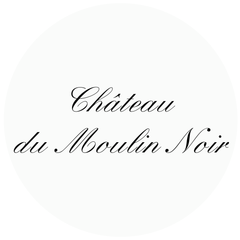
This beautiful right-bank Bordeaux estate consistently produces high-value, elegant and classic Merlot dominant wines and is considered one of the most famous Château of this appellation. Located in Montagne-Saint-Emilion, Château Moulin Noir consists of seven hectares of vineyards on clay and limestone soils.
This château owes its name to a family feuddating back to the Middle Ages. Two brothers were arguing about their father’s legacy with the youngest brother being incredibly jealous that everything went to the elder. He was so jealous that he burnt the château to the ground - Moulin Noir translates to “blackened Mill”.
- Red Wine
- Cabernet Franc
- Organic, Vegan-Friendly
- Dry
- Medium Bodied
- 750ml
- 13.50% alc./vol
About the Winery
Château de Parnay
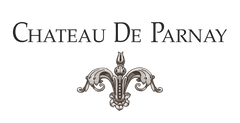
Château de Parnay is the flagship of the AOC Saumur Champigny. The property is located along the Loire river, classified as UNESCO World Heritage, on the most reputable clay and limestone terroirs of the appellation. The historic property was taken over by Mathias Levron & Régis Vincenot in 2006 with the aim of restoring the nobility of this special place.
Drawing their strength from the authenticity of their values, they now cultivate 50 hectares of vines with the aim of producing exceptional wines in a way that respects the environment. They have been certified organic since 2013 and are about to be certified biodynamic too.
The Clos of Chemin des Murs is the jewel of the property! Coming from the imagination of it's orginal owner, Antoine Cristal, this Clos was built, planted and cultivated according to an unprecedented technique. On this half hectare of Chenin Blanc, each vine was planted on the north face of a stone wall. Through a hole in the stone the vine crosses through the wall and allowing the grapes to grow facing the southern sunshine. The vine is said to have its 'foot in the cool and belly in the sun'.
Press Reviews
Wine Align
93 points - Megha Jandhyala
This is a concentrated, complex, gracefully balanced cabernet franc. Notes of ripe red plums, blackberries, dark cherries, tobacco, dried leaves, and violets are interwoven here to form an elegant, engaging, and varietally representative flavour profile. The palate is densely flavoured but lithe, with fine-grained tannins and refreshing acids. The finish is long, layered, and captivating. Though it can be enjoyed now, I would cellar this for 2-3 years. Tasted January 2024.
93 points - David Lawrason
This is a serious cab franc indeed - not so much in terms of weight and power, but in its complexity, poise and length. It’s a deeply coloured for franc. The nose shows fine, ripe raspberry, perfectly pitched by fresh herbs, tobacco and violet. It is loosely structured mid-palate, and a touch warm, with slightly green tannin. The length is excellent. I would age it a year or three. Tasted January 2024
92 points - John Szabo, MS
Silky and refined, elegant but dense, this Saumur Champigny (cabernet franc) is a substantial and serious wine, with a high degree of textbook regional character, complete with a touch of green-herbal, varietal flavour. Tannins are fine and dusty, acids gently salty, and length good to very good. I'd suggest another year or two in the cellar to further refine the texture and develop complexity - potential I think is high. Tasted January 2024.
- White Wine
- Chenin Blanc
- Organic, Vegan-Friendly
- Dry
- Full Bodied
- 750ml
- 13.50% alc./vol
About the Winery
Château de Parnay

Château de Parnay is the flagship of the AOC Saumur Champigny. The property is located along the Loire river, classified as UNESCO World Heritage, on the most reputable clay and limestone terroirs of the appellation. The historic property was taken over by Mathias Levron & Régis Vincenot in 2006 with the aim of restoring the nobility of this special place.
Drawing their strength from the authenticity of their values, they now cultivate 50 hectares of vines with the aim of producing exceptional wines in a way that respects the environment. They have been certified organic since 2013 and are about to be certified biodynamic too.
The Clos of Chemin des Murs is the jewel of the property! Coming from the imagination of it's orginal owner, Antoine Cristal, this Clos was built, planted and cultivated according to an unprecedented technique. On this half hectare of Chenin Blanc, each vine was planted on the north face of a stone wall. Through a hole in the stone the vine crosses through the wall and allowing the grapes to grow facing the southern sunshine. The vine is said to have its 'foot in the cool and belly in the sun'.
Press Reviews
Wine Align
92 points - David Lawrason
This is from a leading Saumur producer of Loire chenin blanc with vines planted in calcerous clay soils near the Loire River outside of classical town. It is both rich and delicate, a juxtaposition I find in some of the world's best whites. It is not however an intense, flashy, acid and mineral driven chenin. Fermentation in neutral barrels has created a pale gold hue and softened the nose to gentle honeyed, spicy state along with ripe pear/apricot jam fruit. It is medium-full bodied, smooth and dry, almost creamy, with the grape's acidity and minerality arriving more on the finish. The complexity and length are excellent, with a touch of wood spice and bitterness as well. Tasted August 2022
94 points - John Szabo
2019: This leads with a terrific nose very much in the varietal/regional idiom, honeyed, floral, apple and lemon zest-scented, complex and exotic, not to mention stony. The palate displays a similar level of poise and composure, cool, transparent yet with a heavy freight of flavour , and terrific length. This is really quite extraordinary wine, delicious now, but surely capable of a decade or so in the cellar. Top notch. Tasted March 2019.
93 points - Michael Godel
2019: The rare and elusive 100 per cent chenin blanc from Samur makes full use of clay-calcaire-tuffeau soils for this dry and piqued white wine. So crunchy and expressive with an expansive character that fills the mouth by making contact withy every nerve and pour. Benchmark and controlled explosive example, rare or otherwise. Drink 2020-2025. Tasted March 2020.
91 points - David Lawrason
2019: It is rare to come across fine Saumur chenin, a central Loire Valley appellation overshadowed by Vouvray. This is mid-weight, dry and quite firm classic with a fairly generous nose of pear, spice, vague fresh herbs and wet stone. It becomes quite dry and somewhat grapefruity bitter on the finish, trailing solid minerality as well. Very good to excellent length. Tasted March 2020.
- Red Wine
- Grenache, Mourvèdre / Monastrell, Syrah
- Biodynamic, Natural, Sustainable, Vegan-Friendly
- Dry
- Full Bodied
- 750ml
- 15% alc./vol
About the Winery
Domaine Viret
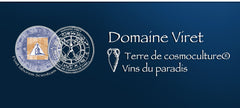
In a magical place steeped in history, Saint-Maurice, in the Rhone Valley. Advocates of the principles of organic and biodynamic agriculture, the Viret family has chosen to employ a particular form of natural viticulture throughout their estate. Known as “cosmoculture®”, this is based on cosmotelluric exchanges. Everything is organised in such a way that both vines and wines are able draw on their own natural defences.
Work in the vineyards focuses on reorganising the magnetic field and on the application of homeopathic and naturals preparations made from rocks and plants that are often found in the vineyards. Alain, Philippe's father, built the winery on an ancient Roman site around an underground spring which they believe energises the vineyards and the winery.
- White Wine
- Chardonnay
- Sustainable, Vegan-Friendly
- Dry
- Residual Sugar: 2 g/l
- Medium Bodied
- 750ml
- 13.00% alc./vol
About the Winery
Domaine Baud Père et Fils

The history of Domaine Baud dates back to 1742, and it wasn't until 1950 when René Baud, the 7th generation, rebuilt the vineyard which had suffered from the phylloxera crisis and two World Wars.
Starting with only 4 hectares, the vineyard progressively expanded to 20 hectares with the help of successive generations. Now, managed by siblings Clémentine and Bastien, the 9th generation, the estate continues to flourish and grow, with a strong commitment to sustainable viticulture and preserving the traditions and style that makes the wines of the Jura so unique and incredible.
The estate achieved the Terra Vitis certification in 2014 for its eco-friendly work and environmental preservation.
Press Reviews
Wine Anorak
94 points - Jamie Goode
Powerful, lively and spicy with concentrated tangy citrus and pear fruit with some saline notes and tangy apple and lemon on the finish. Lovely intensity here with some crystalline citrus fruit.
Wine Align
93 points - David Lawrason
This is not your everyday chardonnay! In the Jura region of east-central France in the lower foothills of the Alps, there is tradition of oxidative winemaking, some under a layer of flor, as occurs in some Spanish sherry. As a result of the advance maturation this pours medium gold. The nose is dominated by classic hazelnut, honey, barley sugar sourdough and anise, around the ripe tropical fruit. It is medium weight, very smooth, well balanced and focused, with excellent length. More lithe lemon notes enliven the finish. There is a touch of tannin. Tasted December 2022.
91 points - John Szabo, MS
A pure chardonnay made in the traditional, oxidative Jura style under flor, not unlike fino sherry, but here the oxidation is more pronounced. Expect bruised apple and cold Orange Pekoe tea, cold wheat toast with honey, lemon pith and zest, and much more in an unusual but complex expression. The palate is mid-weight, showing more fruit and less oxidative qualities than the nose, succulent acids, and good to very good length. I must say, I like the salinity and savoury aspects, the lingering flavours and authentic but unimpeachable winemaking. There's fantasy here; be sure to decant before serving; best now-2026. Tasted December 2022.
91 points - Michael Godel
Clémentine Baud took over the family estate with her brother six years ago. The first father to daughter transition and with many to follow. The estate dates back to 1742, started by Jean-François. They farm 25 hectares, Clémentine’s father started with five and grew to 19 hectares when he retired. Picking for Sparkling now seems to happen in August, save for the difficult 2021 vintage. In 2017 70 per cent of the harvest was lost to the frosts, 50 in 2019 and 80 in 2021. "We have over 40 old varieties in the Jura, important for diversity, including those not allowed under the rules of the AOC," tells Clém. The fruit for Cuvée Flor is grown at a latitude of 46.73 North and though very much a cool climate place for chardonnay the threats of warmer winters and seasonal frosts has wreaked havoc over the past 10 years. A chardonnay of remarkable lustre, concentration and purity, worked by way of oxidative aging, low alcohol expectation starting at 12 and finishing no higher than 14 to 14.5. A floral chardonnay, not one related to yeast and surely a pretty in Jura wine. From the younger vines, phenolic and hinting towards though remaining clear of emerging boozy. Filled with flavour, hazelnut and praline, peach and yellow plum. A world of its own. Drink 2022-2025. Tasted July 2022.
- Red Wine
- Pinot Noir, Trousseau
- Sustainable, Vegan-Friendly
- Dry
- Residual Sugar: 2 g/l
- Medium Bodied
- 750ml
- 13.00% alc./vol
About the Winery
Domaine Baud Père et Fils

The history of Domaine Baud dates back to 1742, and it wasn't until 1950 when René Baud, the 7th generation, rebuilt the vineyard which had suffered from the phylloxera crisis and two World Wars.
Starting with only 4 hectares, the vineyard progressively expanded to 20 hectares with the help of successive generations. Now, managed by siblings Clémentine and Bastien, the 9th generation, the estate continues to flourish and grow, with a strong commitment to sustainable viticulture and preserving the traditions and style that makes the wines of the Jura so unique and incredible.
The estate achieved the Terra Vitis certification in 2014 for its eco-friendly work and environmental preservation.
- Red Wine
- Malbec
- Dry
- Full Bodied
- 750ml
- 12.5% alc./vol
About the Winery
Lionel Osmin & Cie
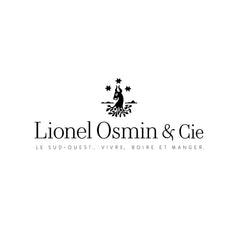
Lionel Osmin & Cie started out with just a group of friends with the same keen passion, with the same love for wines from the South West. Then they had an idea to achieve what nobody had ever done before: to create a quality wine-broking house based on South Western wines following the example of other regions such as Burgundy or the Rhône.
With that founding principle, Lionel Osmin & Co was therefore created under the leadership of Lionel boasting the discovery of the unique wines and vineyards of this region. From Jurançon to Cahors, from Gaillac to Bergerac, passing through Marcillac, Lionel Osmin & Co has become the sole transversal signature of the wines from the South West and their vineyards whose secrets which are yet to be discovered!
The result is a range of wines whose characteristics are faithful to the region and which are made to share the joy of discovering the vines and wines that are enjoyed and loved.
- Vermouth Wine
- Carignan, Grenache
- Natural, Organic, Vegan-Friendly
- Dry
- Full Bodied
- 750ml
- 17% alc./vol
About the Winery
Domaine Frédéric Brouca

Frédéric grew up in Normandy and met his Canadian wife Elaine at university in Lille, Northern France. They live a nomadic lifestyle (Canada, India, Singapore and USA) though Frédéric spends about half of his time in Faugères. Since early age, Frédéric had a calling for farming and the fierce desire to become a winegrower. After completing a Masters Degree in Finance in 2001, Frédéric went back to college for a Sommelier diploma and started his career as a Burgundy wine broker.
In late 2012, Frédéric and Elaine were fortunate to take over 25 acres of old vines in Faugères, organically farmed for twenty years and deeply rooted in schist soils.
2013 was the inaugural vintage for Domaine Frédéric Brouca. In his modest winery in the village of Laurens, Frédéric is creating a new vision for Faugères wines; fresh, vibrant and made without artifice. Nothing revolutionary, simply returning to our grandparent's ideology of farming and winemaking to craft 'Vins Vivants'. The Faugères Appellation is in the heart of Languedoc in the Hérault department. Here, winemaking dates back to the Greek times and was developed during the Roman Era. It wasn't until the early 1900's, however, that the wines became more widely known for its unique schist soils and moderate Mediterranean climate. These villages are heavily reliant on wine as an important part of their culture and economy.
The area is stunning with mountain views and close proximity to the Mediterranean Sea (20 miles / 30 kms). Faugères has a long history of responsible farming. It boasts the highest percentage of organic vineyards for any AOC in all of France with almost 50% of farmers making the choice.
- Red Wine
- Syrah
- Biodynamic, Natural, Organic, Vegan-Friendly
- Dry
- Light Bodied
- 750ml
- 13.98% alc./vol
About the Winery
Domaine du Coulet - Matthieu Barret
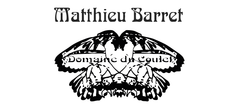
Matthieu Barret was born in Aix-en-Provence in 1975 and studied viticulture in Beaune.
He is the 7th generation vigneron and joined his grandfather in Cornas in 1997. Previously, his family had only been farming and selling grapes. He practices biodynamic viticulture, obtaining very low yields (23 hl/ha) and extraordinary quality. He describes his wines as being 100% grape, with a very low sulphite addition. His wines are extremely clean, and, true to the Cornas character. Domaine du Coulet was founded by Matthieu Barret’s grandfather after WWII, and over the years has supplied grapes to some of the best known producers in the Northern Rhône, including Chapoutier and Delas. While his father eschewed the agrarian lifestyle, opting instead for a career in international business, Matthieu knew early on that he wanted to be a vigneron. In 1998 at the age of only 23, he took over the family’s 25 acres of well-situated vines on the terraced hillsides of Cornas.
From the beginning, Matthieu has employed natural, organic practices and by 2002 (his second year of production) the domaine received its biodynamic certification. With each vintage, Matthieu has gained a better understanding of his vine parcels and through thoughtful experimentation, he now turns out a remarkable selection of Cornas wines that express the unique nuances of each micro-terroir. No new oak, no racking, minimal use of sulfur and no fining or filtration. Pure, sexy Syrah.
- White Wine
- Sylvaner
- Biodynamic, Organic, Vegan-Friendly
- Dry
- Light Bodied
- 750ml
- 12.5% alc./vol
About the Winery
Domaine Muré
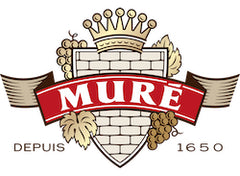
The Muré family has been winegrowers in the region of Rouffach since 1650. In 1935, Alfred Muré, René’s grandfather, bought 32 acres of family-monopole vineyard name Clos St. Landelin, an area that has been described as the best of Alsace Grand Cru since the 7th Century.
Today, René Muré, the 11th generation of the family, along with his children, Véronique and Thomas, are responsible for running their exceptional Grand Cru vineyard and neighbouring terroirs using biodynamic methods. Until this day, they persist in hand-picking every single grape, and focus on crafting wines that preserve the family’s credo. The resulting wines are some of Alsace's finest – powerful, elegant, and age-worthy.
Press Reviews
Wine Align
90 points - Michael Godel
If 2017 was found to exist in the ripe and rich realm for Alsatian sylvaner then wait to you get a taste of what 2018 brings to the varietal table. Also crunchy and finely embittered with a sense of lemons having spent time soaking up neutral spirits. Not your old uncle Sylvain’s sylvaner, no sir, this one’s set up to host the new millennials. An alternative varietal take that will rock the avocado off your toast. Drink 2020-2024. Tasted October 2020.
90 points - David Lawrason
This is a ripe version of sylvaner from a warmer year, with peach fruit, some waxy/oiliness and light caraway and spice. It is medium-full bodied, nicely rich yet firm and dry, with some sense of spritz. There is some pithy bitterness on the finish. The length is very good to excellent. Tasted October 2020
90 points - John Szabo, MS
Clearly ripe, full of fleshy white-fleshed apple fruit and spiced apple chutney, with a vaguely sweet taste, concentrated and generous to be sure. I like the density of flavour and evident intensity, while acids remain firm but ripe and length and depth are excellent. A superior example to be sure, more generous than the mean. Ready to enjoy or hold short term. Tasted October 2020.
90 points - Sara d'Amato
There is a notable elegance to this fresh but fulfilling sylvaner a characteristic tendency of this French/Germanic grape variety. Apple and pear with more apparent sweetness than the previous vintage due to level of ripeness. Highly drinkable, very well defined and a real classic. Tasted October 2020.





























